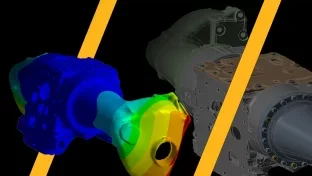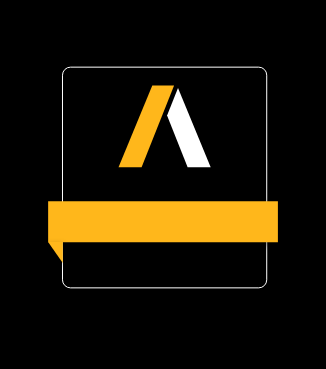
 Almost all bodies undergo thermal expansion i.e., their volume increases as the temperature of the body is increased. If these solid bodies are unconstrained, they can freely expand in all directions due to temperature rise. This thermal expansion is the reason for leaving gaps between successive rails on a railway track. On hot summer days, this gap between the rails allows for the longitudinal expansion of the rails. But if the body is constrained, then it cannot freely expand with increasing temperatures and the object of interest develops stresses, which are often called thermal stresses, because of this confinement. Mechanical components are generally constrained to achieve the desired mechanism. Hence, these components can generally develop thermal stresses in high temperature environments. Naturally, mechanical components are designed with the thermal expansion tolerance in mind. Mechanical simulations play an important role in analyzing the thermal stresses developed in these components.
Almost all bodies undergo thermal expansion i.e., their volume increases as the temperature of the body is increased. If these solid bodies are unconstrained, they can freely expand in all directions due to temperature rise. This thermal expansion is the reason for leaving gaps between successive rails on a railway track. On hot summer days, this gap between the rails allows for the longitudinal expansion of the rails. But if the body is constrained, then it cannot freely expand with increasing temperatures and the object of interest develops stresses, which are often called thermal stresses, because of this confinement. Mechanical components are generally constrained to achieve the desired mechanism. Hence, these components can generally develop thermal stresses in high temperature environments. Naturally, mechanical components are designed with the thermal expansion tolerance in mind. Mechanical simulations play an important role in analyzing the thermal stresses developed in these components.
This SimCafe Structural Course was developed by Dr. Rajesh Bhaskaran, Swanson Director of Engineering Simulation at Cornell University, and Benjamin J Mullen, in partnership with Ansys. It was last modified by Sebastien Lachance-Barrett. It serves as an e-learning resource to integrate industry-standard simulation tools into courses and provides a resource for supplementary learning outside the classroom. In this course, we will look at a canonical problem involving a bar that is rigidly fixed at one end. We will estimate the thermal stresses in this bar using Ansys Workbench.
For more ways to learn, check out the Cornell edX course, A Hands-on Introduction to Engineering Simulations at ansys.com/cornell.
Cornell University also offers a Fluid Dynamics Simulations Using Ansys online certificate authored by Dr. Rajesh Bhaskaran. Learn more here: https://ecornell.cornell.edu/fluiddynamics
A course completion badge allows you to showcase your success. With our badging platform, digital badges can be easily shared in email signatures, digital resumes, and social media profiles, helping you highlight your achievements. The digital image contains verified metadata that describes your participation in our course and the topics and skills that were covered. This badge is for successfully completing the Thermal Stresses in a Bar course.
-
Cost: FREE
- Course Duration: 1-2 HOURS
- Skill Level: Intermediate
- Skills Gained: Heat Transfer, Ansys Mechanical, Steady State Thermal Analysis, Stress Analysis
No reviews available for this learning resource.









